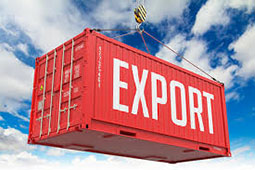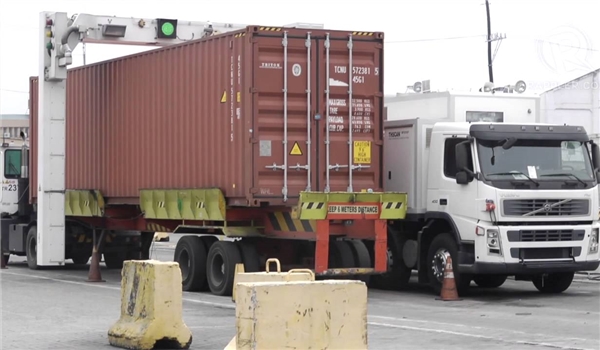
Official: Iran to Boost Exports to Neighboring Countries

Chairman of Tehran’s Chamber of Commerce, Industries, Mines and Agriculture (TCCIMA) Masoud Khansari said today that Iran enjoys high potential and capability for exporting $100 billion worth of products to neighboring countries.
Iran’s neighboring countries import $1,000 billion worth of products annually, so Iran has high capacity to export $100 billion worth of products to neighboring states.
Focusing on export of non-oil commodities is one of the basic ways of overcoming sanctions imposed against the country, he said, adding, “Given the high potentials and capabilities available in the country, we can spur exports and export activities in the country optimally.”
Iran neighbors to 15 countries, total of which import over $1,000 billion worth of products annually, so that Islamic Republic of Iran should take advantage of this potential in its favor, Khansari stressed.
Removing barriers ahead of exports should be taken into serious consideration in the country in line with boosting export of non-oil commodities, chairman of TCCIMA emphasized.
In mid-December, Iran's Minister of Industry, Mine and Trade Reza Rahmani underlined that his ministry prioritizes mutual cooperation with its neighboring countries.
"The overall policy and priority of Iran's foreign trade is to focus on cooperation with neighboring states," Rahmani said.
He said that it is imperative that the capabilities and capacities of the private sector be further developed to enhance trade ties with the neighboring countries.
Referring to his recent participation in the meeting of the Iran-Uzbekistan Joint Cooperation Commission, Rahmani said that holding an exclusive exhibition and business conference with the participation of more than 37 Iranian companies and 100 economic activists in Tashkent was useful to introduce Iranian industrial capabilities.
Rahmani pointed to his meetings with Deputy Prime Minister of the Republic of Azerbaijan, the Minister of Economy of Kyrgyzstan and the Minister of Commerce and Industry of Oman, and said that the increased exports to each of these countries and other export target countries of Iran needs to meet some qualitative requirements, logistics and marketing.
In relevant remarks earlier in December, Iranian President's Chief of Staff Mahmoud Vaezi underlined that the Islamic Republic is pursuing the policy of establishing normal relations with its neighboring countries.
"Iran has good relations with its neighbors, including Afghanistan, Iraq, Pakistan and Turkey," Vaezi said on Friday.
The senior Iranian official, meantime, called for understanding the current situation which is economic war imposed on Iran.
“Enemies are after maximizing economic problems for people and we should act in a way that the enemy understands that its maximum pressure policy does not work,” Vaezi said.
He also called for lifting limitations for trade between Iran and European states.
On December 05, Head of Trade Promotion Organization of Iran (TPOI) Hamid Zadboum announced that plans have been made to boost the annual export of non-oil goods to the neighboring countries to one billion dollars.
“We exported $24 billion of goods to the neighboring states last year and we have made up our minds to raise the figure to one billion dollars this year,” Zadboum said, addressing a seminar honoring top exporters in Hamedan Province.
Noting that intermediaries account for 70 percent of Iran's exports, he added, "Exports are blood in our foreign trade artery and if there are no export earnings, we will not be able to buy the required industrial items.
In relevant remarks in early October, Iran's Economy Minister Farhad Dejpasand said that Iran exported more than $60 billion worth of non-oil goods during the past one and a half years.
“Iran’s non-oil exports reached $61 billion over past 18 months,” Dejpasand said.
He added that only $27 billion have been repatriated, that is, 45 percent of the total sum.
Iran obliged exporters several months ago to repatriate their forex revenues in a bid to resuscitate the country’s economy.



Trump weighs using $2 billion in CHIPS Act funding for critical minerals

Codelco cuts 2025 copper forecast after El Teniente mine collapse

Electra converts debt, launches $30M raise to jumpstart stalled cobalt refinery

Barrick’s Reko Diq in line for $410M ADB backing

Abcourt readies Sleeping Giant mill to pour first gold since 2014

Nevada army depot to serve as base for first US strategic minerals stockpile

SQM boosts lithium supply plans as prices flick higher

Viridis unveils 200Mt initial reserve for Brazil rare earth project

Tailings could meet much of US critical mineral demand – study

Kyrgyzstan kicks off underground gold mining at Kumtor

Kyrgyzstan kicks off underground gold mining at Kumtor

KoBold Metals granted lithium exploration rights in Congo

Freeport Indonesia to wrap up Gresik plant repairs by early September

Energy Fuels soars on Vulcan Elements partnership

Northern Dynasty sticks to proposal in battle to lift Pebble mine veto

Giustra-backed mining firm teams up with informal miners in Colombia

Critical Metals signs agreement to supply rare earth to US government-funded facility

China extends rare earth controls to imported material

Galan Lithium proceeds with $13M financing for Argentina project

Kyrgyzstan kicks off underground gold mining at Kumtor

Freeport Indonesia to wrap up Gresik plant repairs by early September

Energy Fuels soars on Vulcan Elements partnership

Northern Dynasty sticks to proposal in battle to lift Pebble mine veto

Giustra-backed mining firm teams up with informal miners in Colombia

Critical Metals signs agreement to supply rare earth to US government-funded facility

China extends rare earth controls to imported material

Galan Lithium proceeds with $13M financing for Argentina project

Silver price touches $39 as market weighs rate cut outlook

















